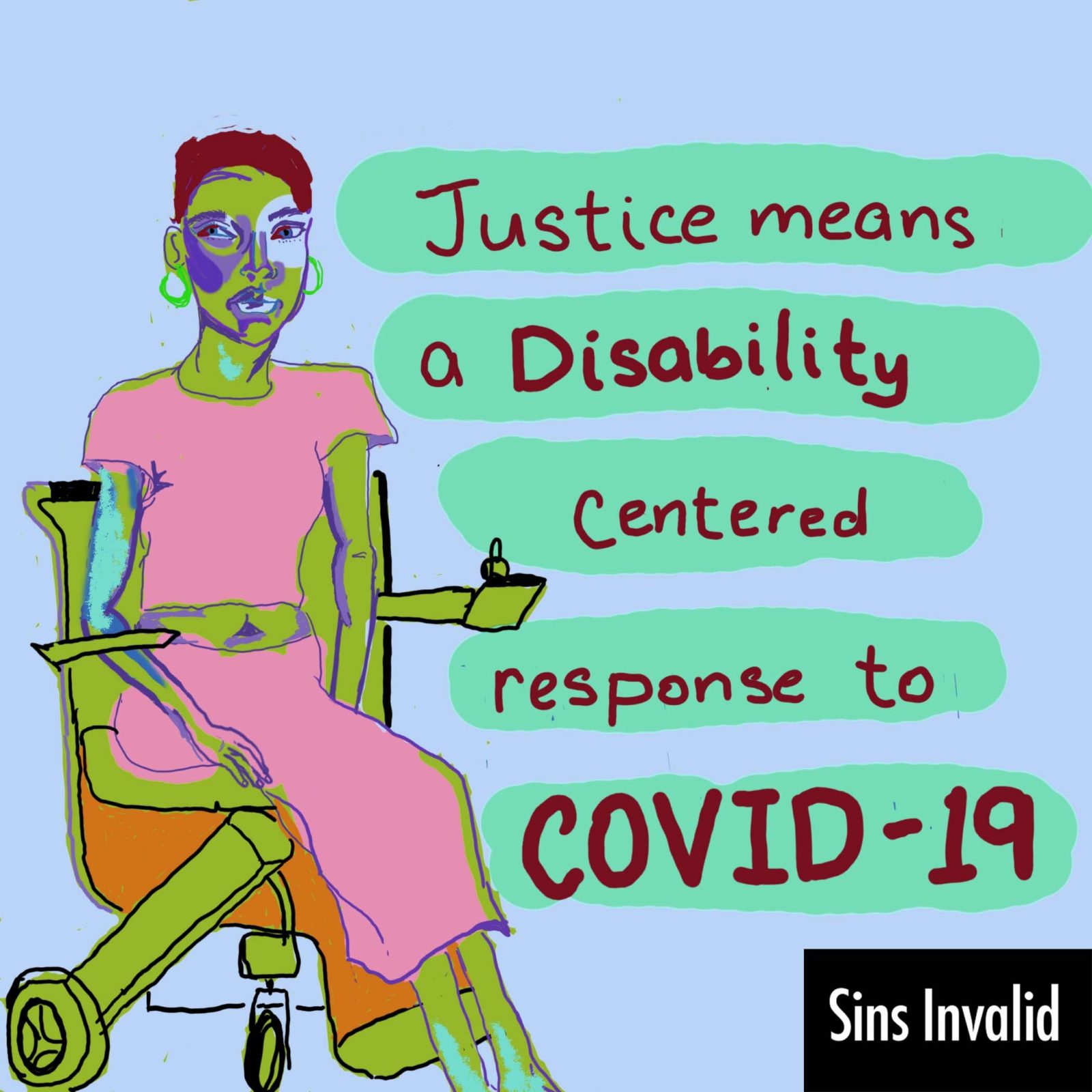The Fight isn’t Over, Keep Going: Practicing Disability Justice in an Under-Vaccinated Nation.

“Everyone should get it for herd immunity.” “Masks don’t really work, they just make people feel better.” “I believe the scientists who disagree.” I feel my face getting hot just recalling the things I’ve heard surrounding the current global pandemic recently.
Talking with covid impact deniers and people hesitant about the vaccine is taxing. But there is still a disparity among adults with disabilities having lower vaccination rates and people are dying at alarming rates so we must keep up the fight. And by ‘fight’ I don’t mean needless arguing with contrarians and trolls who are only there to produce chaos. I mean really listening to our friends, relatives, and others regarding their questions and concerns over vaccines and continued public health efforts.
One of the biggest things we’re seeing is people misinterpreting the scientific process. Of course there are issues where scientists disagree. Jury is still out on whether Pluto is a planet. But in the case of covid, while there may have been some disagreement from the beginning, if you look through the now thousands of articles on the subject, there is consensus: masks work. Vaccines work.
We’ve seen this kind of misunderstanding happen with the science around vaccinations before. Amidst the years of study on the safety of vaccines, there was a single study which was thought to have shone a new light and uncovered the ‘truth’ behind vaccines and their link to Autism. Though that study has since been debunked and even its authors rescinded the findings later, the damage had already been done. That one, now disproved study is still the basis for many arguments because those who wanted to believe in the link failed to continue to engage with the science. Not to mention their own biases about Autism and disability stigma.
So what can we do? We need to keep talking to dispel ableism in the conversation. And here’s how:
Step 1: Sit with It
What happens when someone says something that is harmful or directly conflicts with current scientific consensus? There’s typically an initial wave of some strong feelings, and if you’re like me, expletives. And when we’re experiencing extreme stress – such as that caused by a pandemic – these emotions are likely closer to the surface than you’ve previously experienced, especially for those of us already experiencing disability due to psychological conditions. Allowing yourself to feel whatever you feel without self-judgment, or immediate action, is crucial. Jumping into battle in anger only fuels the fire until the only thing you’re really arguing about is who can shout the loudest. Take a breath, let those feelings wash over you in your own time, and use them as motivation to move forward.
Step 2: Prepare
So direct confrontation makes you queasy. Keep up with data from trusted sources to better arm yourself with the information you wish to use. Follow Disabled folks on social media whose message and approach you want to learn more about (like Disabled advocates, Haben Girma, Alice Wong, Lydia X.Z. Brown to name a few). The important thing is to center your eventual arguments around the voices of the communities you are advocating with (hello Disability Justice!). And just because you’re not having conversations yet, doesn’t mean you’re doing nothing, it means your resistance looks a little different. It looks like supporting friends and family who are the most affected. It looks like donating to organizations or volunteering at vaccination clinics. It looks like talking with like-minded folks who can uplift each other to rejuvenate positive future action.
Step 3: Do it
I love the approach of Rain Dove. They consistently share a method of patience, honest questions, and compassion toward self and others that has yielded some breathtaking results. They come from a place of love and understanding that every person is just that, a person. Often angry and possibly misinformed, but a person nonetheless. This seems like a great way to approach any talk, but it certainly takes practice (I’m still learning!), and it helps to think through these steps on the way there. Also try to remember that these conversations aren’t necessarily just for the people you’re talking to, they could be for the people listening.
Whatever your method, the important thing is to commit to engaging and don’t stop. Not every conversation will go well, and you may feel like you fail more than you do any good. But think about your own journey and the conversations you’ve learned from. You may never have told the people engaging how much something they said resonated with you, but that doesn’t lessen the impact.
Of course, healthy boundaries and breaks are necessary for sustained advocacy. Buckle up for a long pursuit. Stay united, keep going.
Kathleen McCarty (she/hers) is a PhD Candidate in Kinesiology with a concentration in Adapted Physical Activity at Oregon State University. She is a Health Policy Research Scholar through the Robert Wood Johnson Foundation and a Multi-Institution Mentorship Consortium (MAMC) fellow funded by the Office of Special Education Programs. She is queer, neurodivergent, and a disability advocate.

